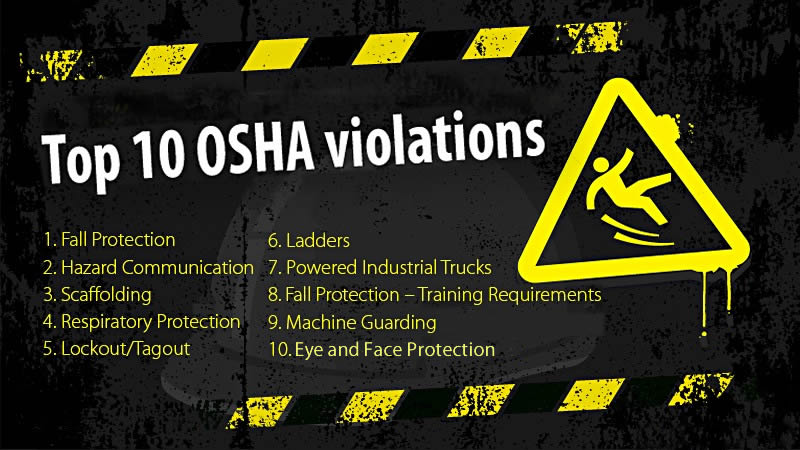
Being injured at work can create a real-life predicament for those who are seriously injured. While workplace injuries are common, many of them are recoverable and allow the employee to return to work in short order.
However, that is not always the case. Serious injuries can cause employees to miss significant work as well as require extensive physical rehabilitation in hopes of being able to return. These cases can assuredly be problematic for both the employee and the employer, and especially when the workers compensation insurance company is contesting the claim.
Relationships can get contentious even above and beyond waiting for the injury to heal, which is often why an experienced workers compensation attorney will be necessary for full payment of insurance benefits.
How Common are Workplace Injuries
Statistics issued by the National Safety Council have shown that workplace injuries are very common, and not only occur on a daily basis but on an hourly basis. The American economy is indeed vibrant, and it is reflected in the number of workers being injured on the job.
Studies have shown that over 500 individuals are injured at work per hour, and nearly 13,000 per day suffer some type of reported injury. Injuries can vary significantly, and many accidents are even investigated by employers and labeled “near miss” incidents that allow placing the affected employee on a different position. These accidents are often not even reported because employers want to avoid putting workers on compensation at all costs whenever possible.
These injuries also include illnesses contracted at work due to chemical exposure and other work environment hazards that are not associated with specific accidents.
Most Common Injuries
Types of injuries tend to vary across different employment fields and industries. While oil workers and loggers often suffer the most serious debilitating injuries, there are many industries where the common events are hand, wrist, and arm injuries, including all body joints.
Certain job that require extensive manual labor commonly render back injuries as well. In addition, these types of injuries are in the repetitive injury class that can be very difficult for injured workers when benefits are being claimed. Repetitive motion injuries are also the most strongly contested and commonly denied by workers compensation insurance companies and employers.
The type of injury is commonly dependent on the particular craft of the worker.
Top Injury Prone Jobs
There are many types of jobs that have high rates of injury among workers. While some strenuous manual labor positions are included in the mix and at the top of the list, injuries per 10,000 full-time employees can vary.
The Bureau of Labor Statistics show that sedentary workers such as receptionists and clerks have a very low rate of injury, as do retail employees and sales personnel. Also included in the lower rates of injury are janitorial workers, order fillers in a wide variety of industries, and registered nurses.
Conversely, nurses assistants suffer one of the highest rates of injury, which is not surprising in the current healthcare emergency. The nature of their work is also labor intensive, and work conditions along with long shift schedules could well contribute to the higher numbers.
Additionally, the same is true for truck drivers and maintenance workers as well as freight labors and construction workers. The truth is that any type of employment that requires workers to be stationed in remote locations can present hazards that other employment fields do not, and especially when the injuries are life-threatening.
Occupational Safety and Health Administration Rules and Regulations
All employers have developed safety programs in place at work, but safety programs also cost the company money. Many programs skirt OSHA rules and regulations, which can be a significant factor when serious injuries happen at work.
While workers compensation insurance is designed as a “no fault” system that insulates the employer from an expensive personal injury lawsuit for the most part, violating OSHA regulations can be a valid element of an injury claim that indicates a level of negligence. Injuries that occur when workplace rules and regulations are being violated can result in both a workers compensation claim and a lawsuit in pursuit of whole financial compensation.
Typical workers comp injuries only include financial recovery for lost wages until the injury repairs along with coverage of generated medical bills, but a personal injury lawsuit based on employer negligence can result in general damages for long-term impact of the injury and any pain-and-suffering that may follow. This also includes mental anguish due to dealing with being seriously injured and potentially disabled.
Most Serious OSHA Violations

There are some specific industries where employees suffer more than their fair share of injuries. And, many of those injuries are actually fatal.
Truck drivers on the top of the list, as over 2,000 workers died in transportation accidents last year. Agriculture workers also die at a higher rate than other industries, as do construction workers. Slip-and-fall injuries are common in these professions, and an even higher death rate is experienced for workers who perform job responsibilities in elevated areas.
Use of all safety equipment is vital in many of these positions, and many times a fatality can be attributed to not using all safety gear at the employees disposal or even ordering an employee to work in an elevated situation without proper equipment.
Know Your Rights When Injured at Work
It is important for any injured worker to understand that cases are all unique in some aspect, and it typically requires representation from an experienced and aggressive legal professional when seeking whole damages.
With the exception of the fact that most workplace injuries are covered by immediate medical attention and coverage, collecting full benefits can prove difficult without solid professional representation. Employers can still be found negligent even though the workers compensation program does exempt them from personal injury claims in some situations.
And, these situations happen more often than workers realize. Regardless of the employment field and willingness to file a workers compensation claim by an employer, it is important for all injured workers to seek legal counsel following any workplace injury. The case could much more valuable than realized.
